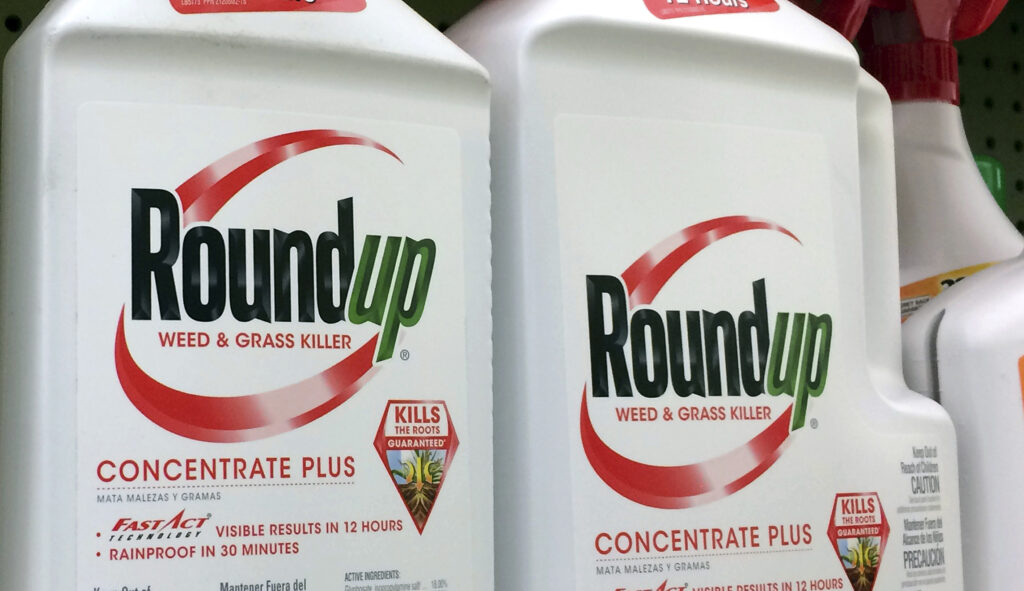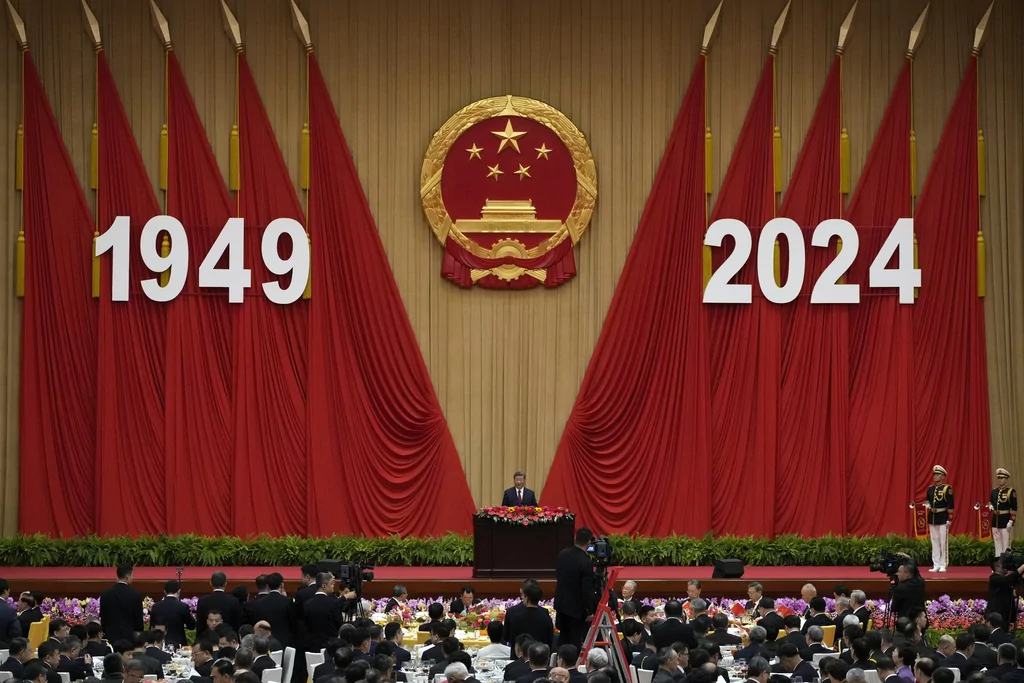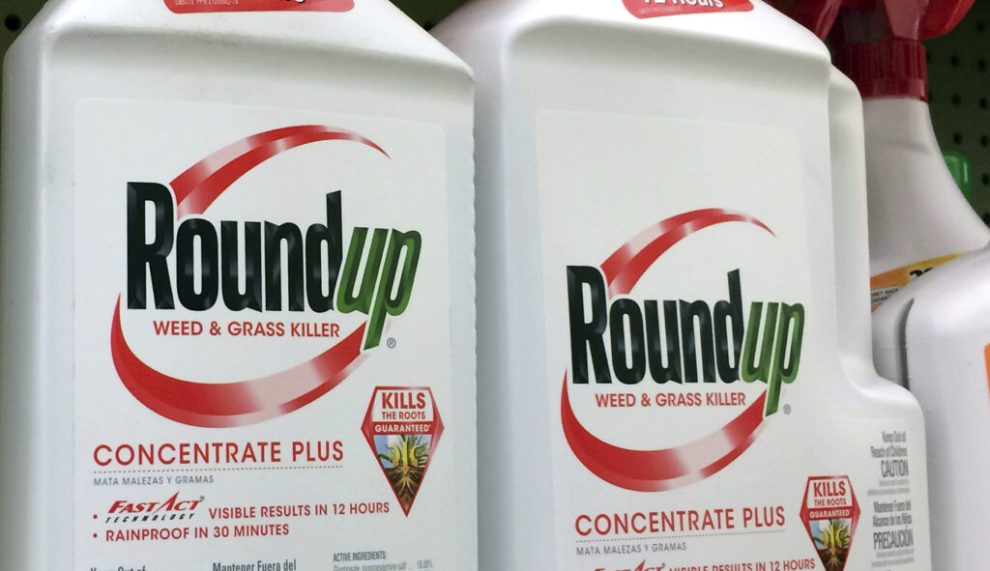Iowa, the second-largest agricultural state in the nation, is mulling legislation that could provide relief to an embattled herbicide manufacturer by providing it with limited legal protections. Lining up to oppose the bill is an army of lobbyists working for environmental groups linked to China, a country that stands to gain if that farm supply manufacturer fails. Complicating the situation is a flood of contradictory scientific evidence concerning the safety of the herbicide in question.
The legislative battle revolves around Bayer AG, a German pharmaceutical corporation that, in June 2018, acquired Monsanto and its flagship product, Roundup, a herbicide made using the controversial chemical compound glyphosate. Fast-forward six years, and Bayer CEO Bill Anderson is telling the press that his corporation faces an “existential” crisis as it handles a deluge of lawsuits claiming that glyphosate, one of the most commonly used agricultural compounds in the world, causes cancer, a claim in which some courts have found merit but scientific evidence is mixed.
In a bid to toss a lifeline to the troubled agricultural manufacturer, lawmakers in Iowa and other red states have repeatedly attempted, and largely failed, to pass legislation that would limit the ability of people to sue agricultural companies. Iowa Senate File 394, among the latest of these bills, would protect Bayer and other corporations from “failure to warn” lawsuits by declaring that the Environmental Protection Agency warning labels on their product are sufficient to inform consumers of health and safety risks.
Bills like these come with huge stakes. Bayer said mounting litigation costs could force it to stop selling Roundup — a move that the Wall Street Journal reports would make American farmers more reliant on Chinese-made glyphosate. Some Americans have accused China, which produces roughly half of the world’s glyphosate in a given year, of selling the compound in the United States at below-market prices in an attempt to destabilize domestic producers and grow their market share.
With high stakes come many lobbyists. The Iowa Environmental Council, for its part, assigned seven lobbyists to advocate against SF 394 in February.

Describing itself as a “nonpartisan alliance of diverse organizations and individuals working together to protect and preserve Iowa’s environment,” the Iowa Environmental Council has, since 2015, consistently received a large portion, at times a majority, of its funding from the Energy Foundation, an international green nonprofit group with deep ties to the Chinese Communist Party.
The Energy Foundation was founded in the 1990s in San Francisco to fund green causes across the world. In 2020, after spending years growing its presence in China and rubbing elbows with CCP officials, the Energy Foundation split into two separate nonprofit groups: the Energy Foundation China and the United States Energy Foundation. Tax forms indicate that the two organizations continued to share office space until 2022.
Ji Zou, who joined the Energy Foundation as CEO about a year before the 2020 split, previously served as the deputy director general of China’s National Center for Climate Change Strategy, an agency within the Chinese government’s National Development and Reform Commission, and has served as a special adviser to the China Council for International Cooperation on Environment and Development, which reports to the Chinese government’s State Council.
Before bringing Ji on board, the Energy Foundation spent millions of dollars aiding China’s rapid infrastructure expansion. In 2018, Energy Foundation co-founder Eric Heitz, for instance, bragged that the nonprofit group helped China become the “largest market and manufacturer for wind and solar” in the world. Tax documents show that the Energy Foundation spent roughly $65 million on programs in China between 2015 and 2019.

Hongjun Zhang, who was on the Energy Foundation’s board while it was funding the Iowa Environmental Council, was previously an official in China’s National Environmental Protection Agency and a legislative director in China’s National People’s Congress. He also served on China’s CCICED.
Other former Chinese government officials who occupied high ranks at the Energy Foundation while it funded the Iowa Environmental Council included its program director of industry, program director of environmental management, director of strategic communications, and a senior adviser, among others.
In 2019, the last year before the split with its Chinese branch, the Energy Foundation provided the Iowa Environmental Council with $510,000 — roughly 52% of its revenue. This figure dropped to about 37% in 2020, hovered around 20% in 2021 and 2022, and rose back up to about 30% as of 2023, with a donation of $515,000. Between 2015 and 2018, the nonprofit organization wired the Iowa Environmental Council over $100,000 each year.
The Environmental Law and Policy Center, which has registered two lobbyists to oppose SF 394, received just over $3.1 million from the Energy Foundation between 2015 and 2019, according to tax filings.
Such close links to China are hardly unique among American environmentalist nonprofit groups. Every year, millions of dollars flow from CCP-connected organizations to domestic green activist groups, and in turn, large U.S. nonprofit groups send millions to China to assist the country with its energy agenda.
The Iowa Environmental Council and the Environmental Law and Policy Center did not respond to requests for comment.
“If Bayer stops producing in the United States, we will be subject to Chinese glyphosate, and, quite frankly, I don’t even know what it contains besides glyphosate,” Kip Tom, a farmer who served as the U.S. ambassador to the United Nations Agencies for Food and Agriculture during the first Trump administration, told the Washington Examiner. “They could be putting other inert ingredients in there. It puts our own national and food security at risk. Imagine China going to war with Taiwan. What happens to the 70% of pesticides that we import to the United States? Obviously, they’ll probably be cut off. And I don’t want to be subject to only having the option of going to China for our products.”
Tom, citing conversations he has had with Bayer’s CEO, said the company’s warning about cutting off sales in the U.S. is not an idle threat.
A previous version of the Iowa bill, advanced in 2024, tackled the China problem directly by excluding Chinese-owned companies from taking advantage of the new protections. The most recent version of SF 394, however, has no such exclusion. State Sen. Mike Bousselot, the legislation’s floor manager, did not respond when asked why the most recent iteration of the bill did not contain such a provision.

As dueling lobbyists from farmers groups, labor unions, environmentalist organizations, and trade associations make their cases for and against the bill behind the scenes, the public discourse surrounding the bill has gotten heated. Some activists have gone as far as to characterize the bill as a “cancer gag act.”
State Sen. Adrian Dickey, a Republican, has said the legislation doesn’t prevent consumers from suing Bayer if they believe one of its products gave them cancer. Rather, it prevents people from suing the company for not including a cancer warning label on its packaging.
“Today’s bill is not preventing anyone from suing a company if they feel the product causes cancer,” Dickey explained. “It’s simply commonsense legislation that states that you cannot sue a company for having a label on a product when the federal government doesn’t allow the label to be on the product.”
Opponents of the bill, meanwhile, argue that many of the studies being used to defend glyphosate safety were influenced by industry money and tampering and that Bayer should be required to issue cancer warnings to its customers.
THE ROLE ELITE US UNIVERSITIES PLAY IN TRAINING PRO-CCP PROFESSIONALS
Muddying the debate is the lack of scientific consensus on the possible dangers surrounding glyphosate. Health authorities across the world, such as the EPA, Health Canada, the European Food Safety Authority, and the Australian Pesticides and Veterinary Medicines Authority, have all attested to the compound’s safety. The World Health Organization’s International Agency for Research on Cancer in 2015, however, found that glyphosate was “probably carcinogenic,” and a 2019 University of Washington study linked the herbicide to non-Hodgkin lymphoma.
Regardless of SF 394 in Iowa, Health and Human Services Secretary Robert F. Kennedy Jr. has expressed a strong desire to wean the U.S. off pesticides and herbicides such as glyphosate, making the future of the substance even more uncertain.
























